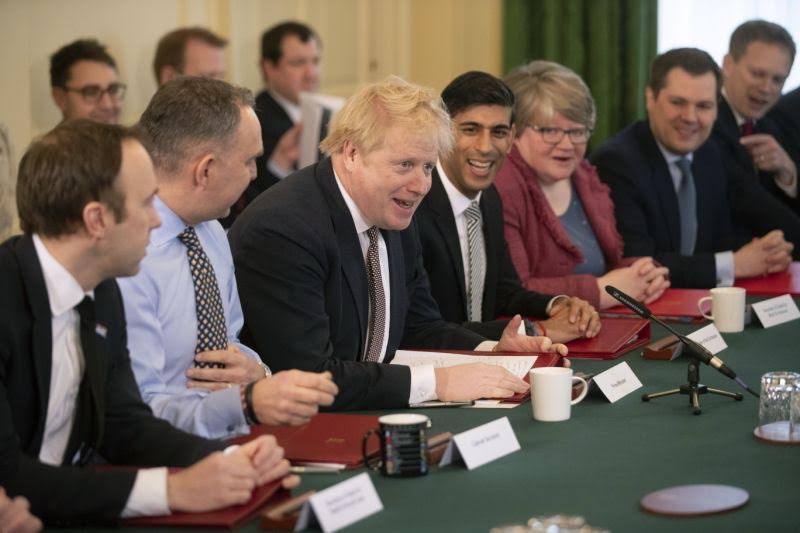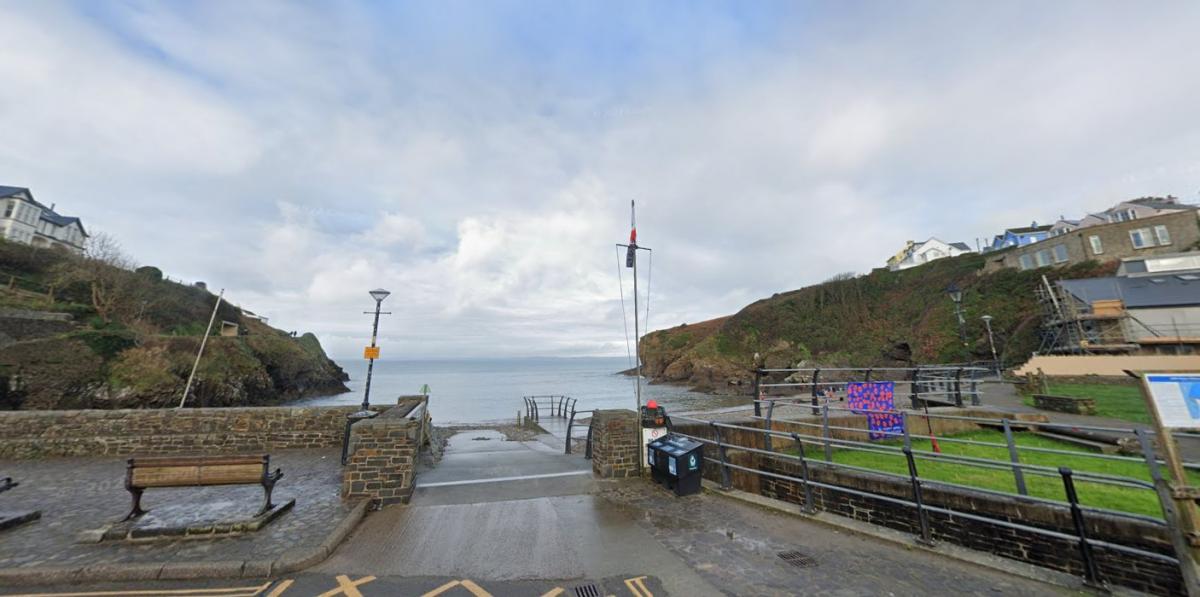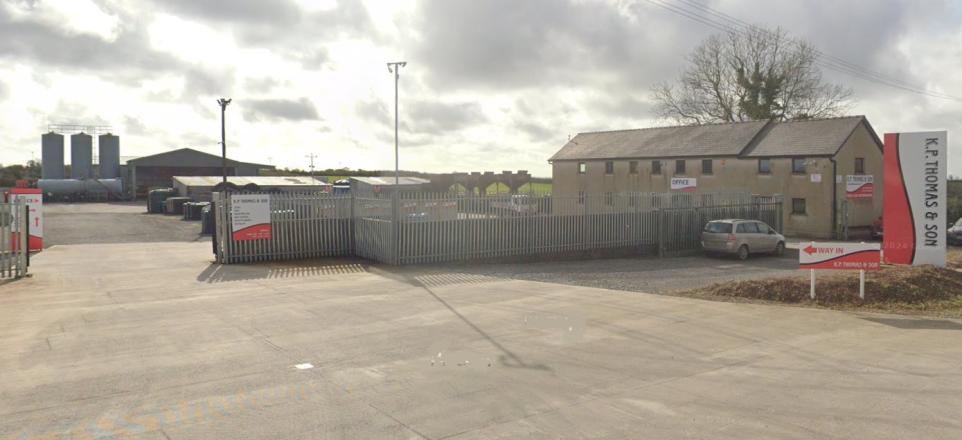Politics
Johnson’s reshuffle throws up jokers

IT WAS all about ‘The Saj’.
The shock departure of the former Chancellor from the government only a few weeks before his first Budget surprised media commentators and MPs alike.
The Chancellor of the Exchequer’s ‘did-he-fall/was-he-pushed’ resignation aside, the reshuffle was a return to the traditional way of Cabinet reshuffling Cabinet members. Out with the competent and argumentative and in with a collection of flunkies and stooges who owe everything to their loyalty to Brexit and Boris Johnson.
Julian Smith became Secretary of State for Northern Ireland in July last year. In his brief tenure in that role, he managed to re-establish the Northern Ireland Assembly and a cross-party power-sharing executive after three years of constitutional limbo during its suspension. That is the sort of signal achievement which usually leads to promotion. However, Mr Smith was an advocate of a ‘softer’ Brexit than proposed by Number Ten. He had gone so far to comment, in October last year, a no-deal Brexit would be “a very, very bad idea for Northern Ireland”.
Competent and with a record of achievement in his brief Cabinet tenure, he had to go.
His replacement is former Conservative Party Chair, Brandon Lewis. Ironically, one of the Conservative MPs who broke pairing arrangements at Mr Smith’s direction when the latter was Chief Whip.
The reaction to Julian Smith’s departure was a series of aghast tributes by all sides in Northern Ireland and Mr Lewis’ appointment greeted by the sort of ‘dangerous indifference’, Irish Taoiseach Leo Varadkar suggested was behind his predecessor’s sacking.
Mr Lewis is as loyal as a loyal thing. You tell him what to be loyal to and he’ll be loyal to it. Rather like a cushion, he bears the impression of the last backside to sit on him. He will lead the nodding dog tendency in Cabinet meetings.
The only tension in the Cabinet with him in it will be whether he or Health Secretary Matt Hancock gets the first Boris Bonio after meetings.
There weren’t only high profile departures, though. Liz Truss remains in place as Secretary of State for International Trade. No. Don’t laugh. Ms Truss’ presence at the Cabinet table is a sign of hope and a beacon to others. Her continued tenure in government is evidence that no matter how dimwitted, mediocre or out-of-their-depth a person is, this is a government of opportunity for all. Her presence shows senior backbenchers with talent, intelligence, and ability that their gifts are no substitute for those qualities’ total absence. To new Conservative MPs with room temperature IQs, her example shows that they, too, can aspire to Cabinet status.
The same might be said for Matt Hancock. The Health Secretary, who’s behaviour in the election campaign marked him out as a man to watch – preferably while he sat in a padded cell rocking to himself and murmuring the words ‘forty new hospitals’ over and over – is the only person in the country to take what the Prime Minister says at face value. The incredibly credulous Hancock has chained himself to the wheel of misfortune and will spin every disaster into a triumph with puppy-like devotion. Like a whipped dog will try to make friends with its tormentor, Matt’s loyalty is endless.
The departure of Andrea Leadsom demonstrates that even Boris Johnson thinks a joke can be taken too far. Floundering in every position she ever occupied, it is difficult to conceive that she could have been the leader of her party, and subsequently PM, barely three years ago, Ms Leadsom’s legendarily argumentative nature ushered her to the Cabinet door.
Her replacement at the Department of Business, Energy, Investment and Skills (BEIS) is Ashok Sharma. Mr Sharma’s appointment is interesting. He might be dangerously half as clever as Boris Johnson thinks he is, which means he could run rings round the PM. His ability was rewarded in a particularly cunning way. Accepting a role turned down by a former PM and a former Foreign Secretary, Mr Sharma will coordinate and chair the government’s preparations for the next round of climate change talks, due to take place in Glasgow later this year.
If the conference achieves anything, highly unlikely as the US, China and India will stall any possible progress, the praise will be the government’s and therefore Boris Johnson’s. Like the Sun King, Boris is not only a state but the state. If it all goes the well-known shape of a pear, Mr Sharma gets to take the fall. Rewarding ability with a poisoned chalice: that’s the way of government these days.
Theresa Villiers’ departure from DEFRA and her replacement with George Eustice received a cautious but warm welcome from farming unions and rural organisations. Ms Villiers’ naked enthusiasm for the benefits of free trade and blindness to the consequences of it for UK agriculture did little to instil farmer with any confidence in her to do what was best for the industry. From a farming background himself, Mr Eustice is far better placed to sell any betrayal to those farmers who, free of the EU as they wished, find their businesses going down the pan if/when imports of lower quality and lower price undercut them after December 31 this year.
The Department of Culture Media and Sport (Don’t Care Much, Seriously) has a new Secretary of State in Oliver Dowden. Mr Dowden replaces Nicky Morgan, a minister you couldn’t possibly describe as two-faced as she wouldn’t wear the one she does if she was.
Mr Dowden’s main ministerial achievement in a brief parliamentary career was his replacement by Jonny (‘Did I mention I was in the Army?’) Mercer as a junior flunky in the Cabinet Office. His task is to put into place the Government’s policy of neutering the BBC and trashing public service broadcasting. A PR man before entering parliament and – as a special advisor to David Cameron – a PR man for a PR man, Mr Dowden will have to sell the Government’s plans to dismember the BBC to the public and MPs.
The appointment that caused most comment and concern was Suella Braverman’s promotion to replace Geoffrey Cox QC as Attorney General. Brexiteers hailed Mr Cox’s independence of mind and judgement when he declined to rubber-stamp Theresa May’s proposals for an Irish Backstop as part of her doomed attempts to force a Withdrawal Agreement through Parliament. He also loudly – he doesn’t do quietly – laid into the High Court’s decision that Mr Johnson’s prorogation of Parliament was unlawful. However, Mr Cox is also a person with a deep and abiding respect for the rule of law and the need for courts to act as a check and balance on poorly-made and ill-considered legislation. The growth of Judicial Reviews of governments’ laws can be partly laid at the door of those who prepare legislative measures in haste and then repent at leisure as the Court’s painstakingly explain why they are unenforceable or unlawful. Whatever his flaws as a Government minister, Geoffrey Cox is a proper lawyer with a keen understanding that bad laws and incompetently-prepared legislation are properly subjected to scrutiny by the Courts.
Suella Braverman has no such scruples. An advocate of increasing political vetting of judicial appointments, she also has no evident skills as either an advocate for sound law and sound law-making.
The role of the Attorney General is to advise the government, as impartially as possible in the circumstances, on a range of legal issues arising from its planned legislative programme. Ms Braverman’s appointment is a sign that what Boris Johnson wants most from his law officers is a nodding-dog approach, a readiness to sign-off on any crackpot plan, and knifing the Courts for doing their job properly in a plural democracy in which an overmighty executive needs curbing.
The most rabid of Brexiteers and an appalling media performer whose backside she often confuses with her humerus, Suella Braveman cannot be relied upon to do what’s right but can be relied upon to do what Boris Johnson tells her is right. Otherwise, her main qualification for her new role seems to be the gift of forgetting that she studied at the Sorbonne under the Erasmus programme and had her post-graduate studies in Paris funded by the French embassy. In other words, precisely the sort of exposure to continental education and cultural enrichment this Government is dedicated to ending.
And finally, we come to the new Chancellor. Rishi Sunak’s rise to power is proof that enormous personal wealth, a background as a merchant banker and having a job working for his indescribably wealthy father-in-law. All that might be unfair to Mr Sunak; however, replacing state-educated Sajid Javid with a privileged alumnus of Winchester could be easily interpreted as an attempt to broaden the government’s appeal to distressed billionaires.
Mr Javid’s loaded remarks around the circumstances of his dismissal, ‘no self-respecting minister would continue to serve’ (if ordered to sack his entire team of ministerial advisors) suggests Mr Sunak’s self-respect is in inverse proportion to his self-regard. It is also a sign that Mr Johnson has restored the long-forgotten tradition of the Exchequer as a money chest at the beck-and-call of a prime-ministerial whim. Mr Sunak’s one advantage is that he can scarcely be sacked after the manner of his predecessor’s leaving. At least for as long as he does what he’s told.
The cringe-worthy sight of Mr Johnson’s new Cabinet at its first meeting playing call and response with the class bully suggests that Boris Johnson now has a team he wants. More-or-less malleable office-holders who will do as they are told. Taking back control, it turns out, means an uncontrollable PM.
Community
Emergency call to protect Withybush Hospital by local councillors

AN EMERGENCY call for Pembrokeshire’s council to take greater action in safeguarding the future of Withybush hospital is to be heard next week.
At the full council meeting of March 5, an emergency notice of motion by the council’s 11-strong Conservative Party group will demand that the Welsh Government immediately reverses the decision to cease emergency general surgery at Withybush Hospital.
Last year, Hywel Dda University Health Board consulted with its communities on options for change in critical care, dermatology, emergency general surgery, endoscopy, ophthalmology, orthopaedics, stroke, radiology and urology.
It said its Clinical Services Plan focuses on nine healthcare services that are “fragile and in need of change”.
The proposed changes included an option for Withybush patients needing specialist critical care being transferred to Glangwili.
At a recent two-day meeting, the board, amongst its many other decisions, backed changes into emergency general surgery which will see no emergency general surgery operations taking place at Withybush, but a strengthening of the same-day emergency care (SDEC).
A petition against the plans already has more than 4,000 signatures and has met an angry response from local politicians and campaigners.
At the March council meeting, the Conservative council group, led by Cllr Di Clements, will say: “The Welsh Government has powers of intervention in Sections 26-28 of the NHS (Wales Act) 2006 which enables it to intervene in decisions made by a health board, in this case the Hywel Dda University Health Board.”
It says that Pembrokeshire residents “have seen continual downgrading of services over the years, and this has been detrimental to all residents,” adding: “We believe this recent decision is life threatening to those who need emergency surgery and a matter of resident’s safety.
“Every hour lost, on average, survival rates decrease by four per cent. Those who live furthest west and north will be affected the most.”
The group adds: “We are concerned especially that this has the huge potential to affect A&E provision. With limited opportunity for doctors to operate we are concerned that our county hospital will be left with few or no senior surgeons and A&E will be forced to close.”
The group has also questioned the accuracy of figures quoted by the First Minister Eluned Morgan on the number of affected patients, saying: “HDUHB own figures for the changes to emergency surgery put the number at nine per week, not five.”
The group has said it “acknowledges that Pembrokeshire County Council has no control over health services in the county, but the 60 county councillors represent approximately 120,000 people who at some point may need hospital services”.
Group leader Cllr Di Clements said: “I am certain the whole county will support our aim to prevent any more downgrading of services at Withybush.
“We are treated like second class citizens, and it is just not good enough.”
Business
Little Haven garden shed holiday let appeal dismissed

AN APPEAL against a national park refusal of a scheme to convert a garden shed to a holiday let at a Pembrokeshire seaside village with the highest rates of second homes and holiday lets in the county has been dismissed.
Last April, in an application before Pembrokeshire Coast National Park, Shabnam Banihashem of 19a Wesley Road, Little Haven sought permission to convert a rear garden shed, already replace with a summerhouse, to holiday let accommodation.
Local community council The Havens had objected to the scheme, saying it has concerns over parking and highway access arrangements, and concerns about impact on Highway traffic safety-related matters.
An officer report recommending refusal said: “The Authority has concerns in connection with the proposal due to the impact upon the residential amenity of the host dwelling, and its immediate neighbours, the impact upon the character of the Little Haven Conservation Area due to the potential for additional traffic, and due to the proposed summerhouse being unsuitable in terms of size for the use of holiday letting.”
The application was refused on grounds including “introducing a significantly greater level of noise and disturbance than the current situation, to the detriment of the residential amenity of neighbouring properties,” and impact on the conservation area.
Since that refusal, the applicant appealed the decision with Planning and Environment Decisions Wales (PEDW); a site visit by the inspector taking place on January 28 of this year.
The main areas covered in the appeal were the effect of the proposal on the living conditions of neighbouring occupiers and future occupiers of the proposal, with regard to noise and privacy, and the character of the Little Haven Conservation Area, the inspector’s report said.
In dismissing the appeal, she said: “I have found the proposal would be acceptable with regard to its effect on the Conservation Area.
“However, this is outweighed by the harm that would be caused to the living conditions of the occupiers of the host dwelling, as well as occupiers of the proposal, with regard to privacy.”
A previous national park report, based on the second homes council tax premium payable to Pembrokeshire County Council, has said nearly two-thirds of properties in Little Haven are either second homes or holiday lets.
At the time of the 2023 report, the highest rates of seconds homes or holiday lets in the national park were: Nolton Haven 60 per cent, and Little Haven 62.96 per cent.
Business
Templeton Pembrokeshire fuel business home for security call

A CALL for a home to provide security for a well-established Pembrokeshire fuel distribution business and a proposed museum, which has hopes of developing further business units, has been submitted to county planners.
In an application to Pembrokeshire County Council, Dan Thomas, of KP Thomas & Son, through agent Cynllunio RW Planning Ltd, seeks permission for the erection of dwelling for management of on-site enterprises and associated works at The Fuel Depot, Templeton.
A supporting statement says family-run K P Thomas and Son, situated on a site close to a former airfield and former nuclear bunker, has been operating for 39 years and has “grown into a major local employer, currently providing work for 32 staff,” supplying “over 45,000 customers annually and distributes 30 million litres of fuel, 8,000 tonnes of LPG gas and 500 tonnes of coal every year,” and was “formally designated as an essential key service provider during the Covid-19 pandemic”.
A statement from Dan Thomas said he had moved some 15 minutes away to Narberth when he became a homeowner some five years ago, but “it quickly became clear that this arrangement was not workable due to the urgent and unpredictable nature of our operations”.
He said any detailed several incidents on-site which required an immediate on-site response, “the travel time from Narberth frequently caused delays, operational disruptions, and increased environmental risks”.
He said even living in nearby Templeton could cause difficulties for any emergency call-outs, which often occur in the early hours; the 24-7 business handling fuel distribution and transport logistics throughout Pembrokeshire and beyond, with his own working hours often running from 5am to as late as 8pm.
“Consequently, I had no choice but to relocate to the family home adjacent to the depot to ensure the continued safe and efficient operation of the business. This remains a temporary measure, and a permanent on-site dwelling is therefore essential to ensure long-term operational efficiency, safety, and compliance.”
He added: “As part of our fuel distribution operations, we regularly receive bulk fuel deliveries overnight. In the event of a spill, leak, or fault, an immediate response is vital to prevent environmental contamination and ensure public safety. Currently, if such an incident were to occur, I would need to travel from my home to the site before taking any action.”
As well as the existing facilities, it is hoped to construct several leasable commercial units on the site, with prospective tenants wanting permanent on-site security and immediate site supervision, Mr Thomas said.
His statement also says his grandfather “had begun developing a museum as a business but unfortunately passed away before its completion,” adding: “The value of the museum content alone, excluding the building, which includes a kitchen and café facility, was appraised at just over £12.5 million.”
He finished: “The proposed on-site dwelling is not a matter of convenience but one of operational necessity, safety, and environmental protection.”
The application will be considered by county planners at a later date.
-

 Health6 days ago
Health6 days agoPetition calling for Withybush intervention nears 5,000 signatures
-

 News6 days ago
News6 days agoWelsh Government criticised after Russian-linked drone image used in defence announcement
-

 Crime7 days ago
Crime7 days agoMilford Haven pensioner admits sexually assaulting two shop workers
-

 Business7 days ago
Business7 days agoCouncil reviewing complaints over Computer Solutions Wales as concerns continue
-

 News6 days ago
News6 days agoHoax 999 call sparks massive lifeboat and helicopter rescue — man arrested
-

 Community6 days ago
Community6 days agoPub reopens with VIP club launch and free drink offer
-

 Health6 days ago
Health6 days agoPetition against hospital service changes surges past 6,000 signatures
-

 Crime6 days ago
Crime6 days agoWest Wales man jailed for murder of five-month-old baby























